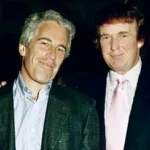
With a firm stance, BRICS is redesigning the global balance, strengthening sovereignties and showing that cooperation between emerging nations can create a fairer future
The world is witnessing a transition from unipolarity to multipolarity, Kremlin spokesman Dmitry Peskov said during a Sputnik event in New Delhi, India. The change, according to him, is driven by initiatives such as BRICS, which challenge dominated systems of power and combat neocolonial practices.
At the event titled “New avenues for cooperation between Indian and Russian media: Boosting people-to-people ties between India and Russia”, Peskov highlighted that the new world order must be based on “mutual respect, reject any signs of neo-colonialism and remove threats to different countries.”
He argued that it is essential to allow nations to solve their own problems without outside interference.
According to Peskov, BRICS plays a crucial role in combating attempts to implement neocolonial systems. As an example, he cited the unprecedented, and often “unforgivable” pressure that India faces from the United States.
In contrast, he praised Russia’s stance, which does not seek to “lecture” India on issues such as its border disagreement with China, as well as not interfering in Chinese policies towards India.
“Russia values its relationships with India and China. When Russia says multipolar world, it means it. Russia does not interfere in regional matters and neither should America,” Peskov highlighted.
The Kremlin spokesperson reinforced that the BRICS exemplifies a model of cooperation that rejects unilateral control and promotes joint solutions to global challenges.
This approach directly challenges what he described as the United States’ interventionist behavior, particularly in situations like the Ukraine crisis.
Regarding the US stance, Peskov stated that Russia is open to a peace proposal from President-elect Donald Trump for the conflict in Ukraine.
He, however, accused the Biden administration of “advocating war, not peace,” referring to recent authorizations for deep strikes into Russian territory.
Finally, Dmitry Kiselev, general director of Rossiya Segodnya, Sputnik’s parent group, commented on the tension between Russia and NATO, highlighting that Vladimir Putin’s response included a new nuclear doctrine.
This policy considers attacks by non-nuclear states supported by nuclear powers to be acts of joint aggression.
With the strengthening of BRICS and its rejection of neocolonialism, the bloc positions itself as a pillar in the transition to a multipolar world, redefining global power dynamics and promoting more equitable governance.
With information from Sputnik and Global Times*
Source: https://www.ocafezinho.com/2024/11/21/como-o-brics-esta-desafiando-o-neocolonialismo/

